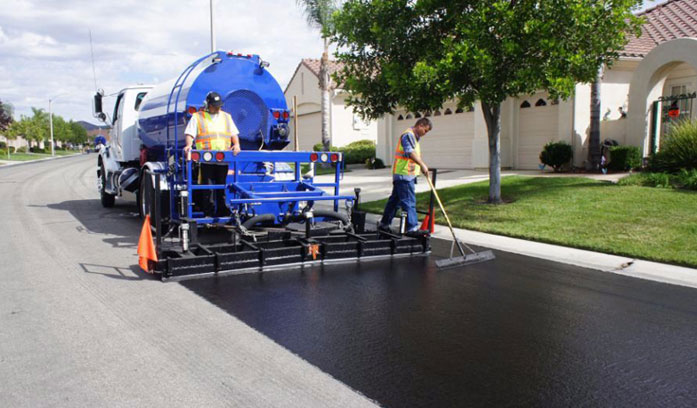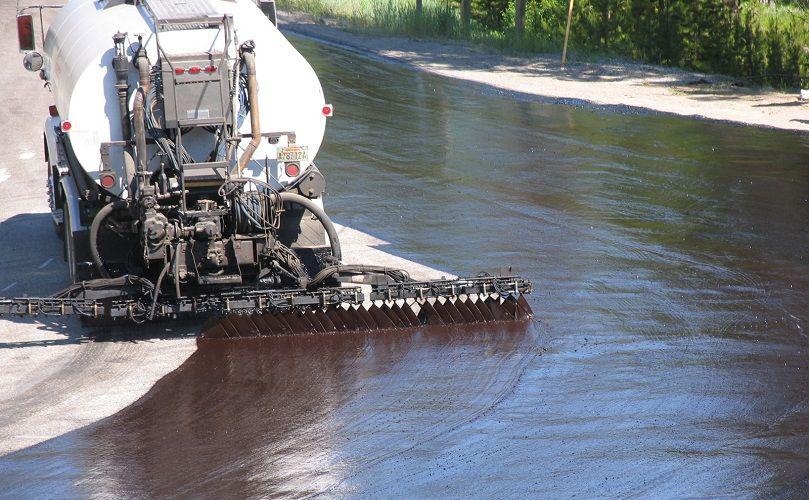Bitumen Emulsion
Cationic emulsion bitumens
With the increasing development of science and technology and attention to environmental health, we are witnessing the creation of bitumen products that have very little harm to the environment and of course other advantages that we will mention.
Today, the use of a product called emulsion, also known as environmentally friendly bitumen, has become common in the bitumen industry, which in short is a product of mixing bitumen and water and necessary additives that are dispersed in suspension in the bitumen phase during a chemical process.
Emulsion is a very suitable alternative to soluble bitumen (mc). The most important difference between emulsion and soluble bitumen is the use of water instead of oil in its production. This leads to significant advantages of this product; for example, oil, which is a valuable material, is used for more important uses; because in soluble bitumen, oil only acts as a solvent for bitumen and penetrates the soil or evaporates after application. Also, in terms of the final price, using water instead of oil has significant economic savings. Another point is that water returns to the water cycle in nature after evaporation, but oil will be completely destroyed after consumption and evaporation.
Also, the use of soluble bitumen causes serious damage to asphalt, and by not using it, we will significantly contribute to increasing the lifespan of asphalt, and most importantly, eliminate soil and air pollution by eliminating the use of soluble bitumen in road construction and have a healthier environment.
Now, Mehran Hesar Refining Company is ready to provide all types of emulsions of the highest quality in the national and international markets, using the most advanced emulsion production system in the country with a production capacity of 15 tons per hour.
Reference standards for cationic emulsion bitumens
Technical specifications of emulsion bitumens
Quick-setting emulsion bitumens
Slow-breaking emulsion bitumens
Long-lasting emulsion bitumens
Fast-breaking emulsion bitumens



